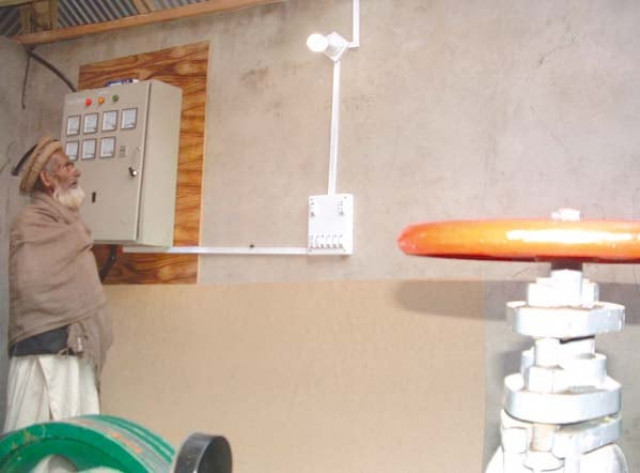Micro-hydel power stations: Taking computers out to the pasture
In a town where people think computers are animals, self-supplied electricity is a Godsend for further development

Located some 40 kilometres from Mingora, Jorbandai, Mian Jay and Jahangir house about 1,000 families. The three villages however do not have access to basic facilities such as electricity, roads, hospitals, schools or clean drinking water.
Even though there was a plan to provide electricity to the villages, the little work done by the government was washed away by the floods. When United Nations High Commission for Refugees (UNHCR) approached the local community for its early recovery and restoration plan, they said they wanted electricity. The commission provided the necessary funds and support to install a micro-hydel power station (MHP).
“We have never seen each other’s faces at nights and go to mosque with sticks to avoid snakes,” Wahid said.
“All the people in the area are very excited by this [micro-hydel power station], we have no words to express our joy to them (UNHCR and Sarhad Rural Support Programme),” he added.
After conducting a survey, Sarhad Rural Support Programme (SRSP), using funds from the UNHCR, selected 12 areas (including these three villages) to install the MHPs, literally bringing new light to their lives. The three MHPs supplying power to Jorbandai, Mian Jay and Jahangir started working on Wednesday.
A 12-year-old boy, Saad, came running to the inauguration of the power station and was frozen in awe by a lit bulb.
When asked about using a computer now that there was power, he whispered to another boy, “I think he’s talking about some animal.”
In a population of 7,000, only 20 men have Secondary School Certificates and only six have obtained a bachelor’s degree, and all of them are still farming. There is no local school and the only primary school is situated six kilometres away.
Subhan Ali, a young social activist who is running a school while doing his Bachelor of Arts privately, told The Express Tribune, “When SRSP came to our village, they sensitised, mobilised and organised the village, and then they installed this MHP, which will provide electricity to over 80 houses free-of-charge.”
Subhan’s loves of education and fondness for computers can be witnessed in his rental of a building specifically for his computer in an electrified village nearby.
“Thanks to this power generator, the long stretches of darkness in our lives will surely be replaced by modern technologies like radio, TV and computers,” he said with excitement.
The three power generators cost about Rs6 million and their installation took two months to complete, according to Anwar Khan, and SRSP engineer. Some 450 houses will be powered.
On maintenance and repair, Anwar said, “Each house will be charged Rs50 which will be deposited in a bank account. Of this, 40 per cent will be spent on repair and maintenance and 40 per cent will be paid to the operator as salary, while the remaining 20 per cent will be saved.”
Baber Khan, an MHP expert working with SRSP said, “Swat’s water supply allows for increased MHP installation and usage with no load shedding.”
The UNHCR and SRSP have launched 12 community-based power generation projects worth Rs30.8 million to provide power to 1,755 households. The local communities are contributing labour and materials to the project.
Speaking at the inauguration, UNHCR Peshawar head Ahmed Warsame said, “Today I am glad to be here and say to the community that this is the beginning of long-term co-operation with this community. We will try to support you in the sectors of education and health as well.”
Published in The Express Tribune, January 29th, 2011.













COMMENTS
Comments are moderated and generally will be posted if they are on-topic and not abusive.
For more information, please see our Comments FAQ